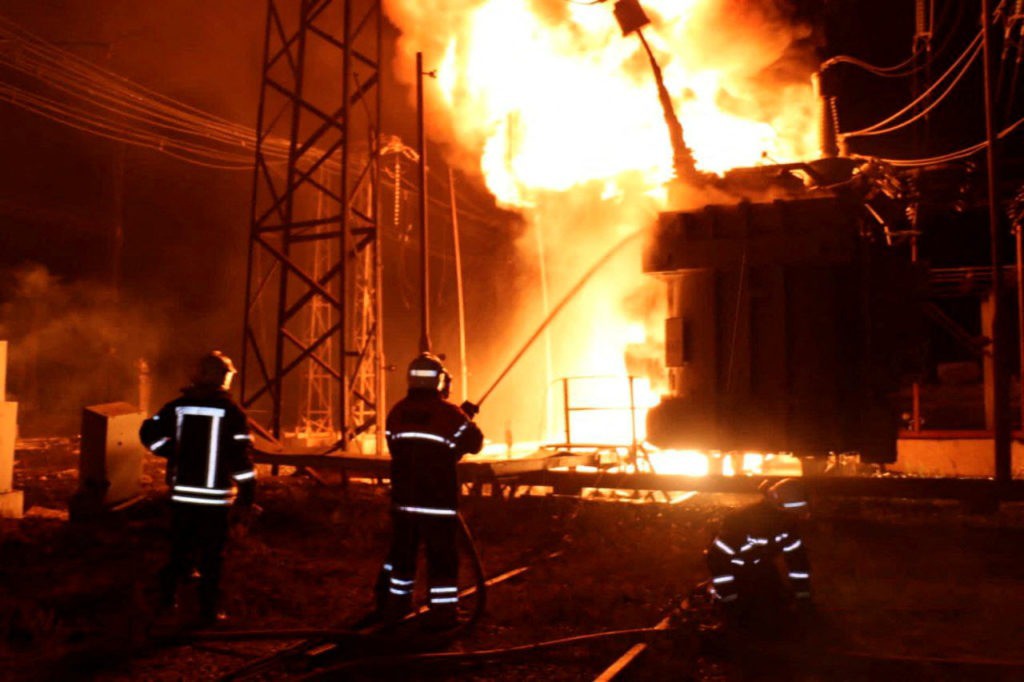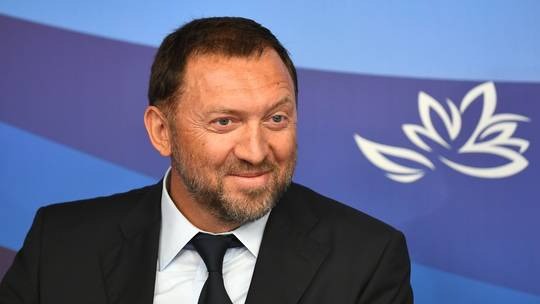Russia attacks "all targets" of Ukraine's military and energy
Russia's Defense Ministry recently said its forces had attacked several Ukrainian military facilities and gas infrastructure in an operation.

Russia attacks Ukraine's military and energy infrastructure
According to a statement from the Russian Defense Ministry on October 3 (local time), Moscow launched missiles and deployed long-range unmanned aerial vehicles (UAVs) from multiple launchers, hitting all the intended targets.
According to RT (Russia), Ukraine's state-owned energy corporation – Naftogaz – described this as the largest attack on gas fields ever, and admitted that some of the damage was "serious".
Naftogaz said that facilities in Kharkov and Poltava were hit by about 35 missiles – mostly ballistic missiles – and about 60 UAVs.
Ukraine called the attacks "militarily pointless". Moscow insisted that Russian forces did not target civilian infrastructure.
Meanwhile, Kiev sees long-range strikes on Russian oil refineries and energy infrastructure as a key part of its strategy. Kiev has also called on the West to help it increase domestic production of UAVs and missiles.
Ukraine also plans to export some of its domestically produced weapons to help cover its budget shortfall, while hoping Western allies will help finance the rest.
Russian President Vladimir Putin warned this week that Ukraine’s targeting of sensitive Russian infrastructure, including attempts to damage nuclear power plants, could trigger a reciprocal response.
“This is a dangerous game,” Putin said while attending an event in Sochi, Russia. “Those on the other side should understand: If they continue, nothing will stop us from responding in kind. They should think about that.”
UK terror attack: Victims die from police bullets
One of the two victims killed in an attack outside a synagogue on the outskirts of Manchester, England, on October 2 was shot by police, authorities have confirmed.
Greater Manchester Police Chief Superintendent Stephen Watson said police believe the attacker – identified as Jihad al-Shamie, 35 – was not carrying a gun. The fatal wound to one of the victims was a gunshot wound.
“Therefore, unless the post-mortem examination reveals otherwise, this may, unfortunately, be an unintended consequence of the urgent action taken by our officers to stop a brutal attack,” Watson said, according to the Guardian.
The two victims have been identified as Adrian Daulby, 53, and Melvin Cravitz, 66. Both died outside the Heaton Park Hebrew Congregation in Crumpsall, after al-Shamie, a British citizen of Syrian origin, drove his car into a crowd and attacked a passerby with a knife. The suspect was shot dead by police within seven minutes of receiving a call on the morning of 2 October.
Manchester Police said three other people had been arrested on suspicion of involvement in the terror plot.
UK newspaper: EU considers lifting asset freeze on Russian billionaire

The Financial Times (UK) reported on June 3 that the EU is considering partially lifting sanctions to release about 2 billion euros in shares in the Strabag construction company (Austria), related to Russian billionaire Oleg Deripaska, to transfer to Austria's Raiffeisen Bank International (RBI) to compensate for the damage that the Russian court ordered RBI to suffer.
RBI is one of the very few Western banks that still maintains operations in Russia after the EU imposed sanctions from 2022, despite pressure to scale back operations.
Previously, RBI and billionaire Deripaska had negotiated an asset swap to reopen control of Strabag shares (24%) but it was canceled due to concerns about violating EU sanctions and pressure from the US.
This transfer would essentially enforce the Russian court's ruling, raising concerns in the EU that the move could set a precedent for other Russian entities to reclaim frozen assets.
Russian billionaire Deripaska has repeatedly criticized Western sanctions as “outdated and counterproductive,” arguing that they do not weaken Russia but pose risks to the global economy.